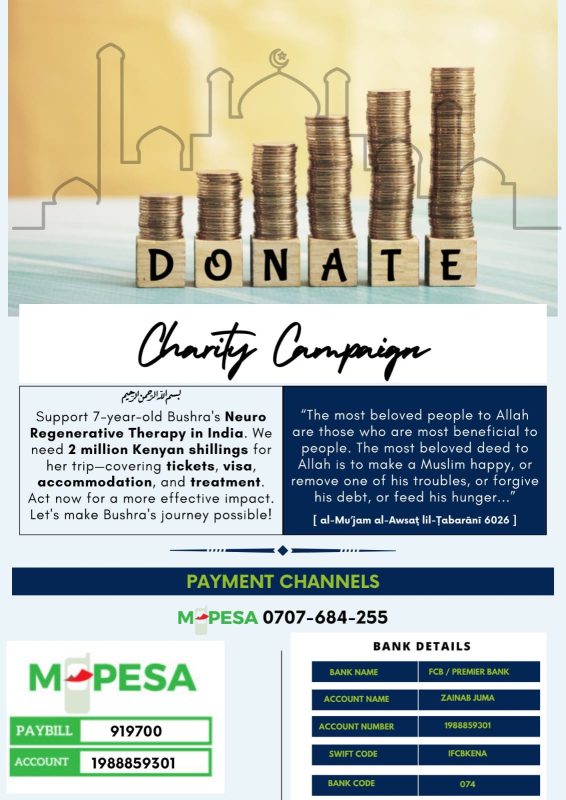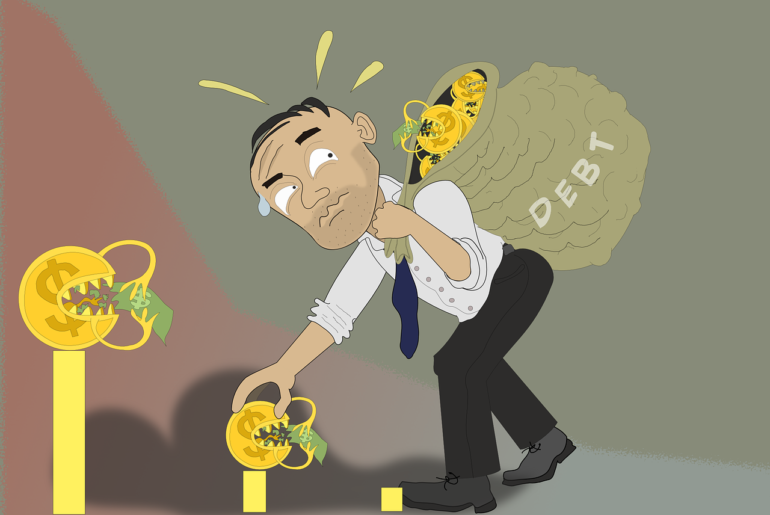To read part 4, click here
Getting attached to the Dunya
"I was one to get attached.
Ever since I was a child, this temperament was clear. While other children in preschool could easily recover once their parents left, I could not. My tears, once set in motion, did not stop easily. As I grew up, I learned to become attached to everything around me. From the time I was in first grade, I needed a best friend. As I got older, any fall-out with a friend shattered me. I couldn’t let go of anything. People, places, events, photographs, moments—even outcomes became objects of strong attachment. If things didn’t work out the way I wanted or imagined they should, I was devastated. And disappointment for me wasn’t an ordinary emotion. It was catastrophic. Once let down, I never fully recovered. I could never forget, and
the break never mended. Like a glass vase that you place on the edge of a table, once broken, the pieces never quite fit again.
However, the problem wasn’t with the vase, or even that the vases kept breaking. The problem was that I kept putting them on the edge of tables. Through my attachments, I was dependent on my relationships to fulfill my needs. I allowed those relationships to define my happiness or my sadness, my fulfillment or my emptiness, my security, and even my self-worth. And so, like the vase placed where it will inevitably fall, through those dependencies I set myself up for disappointment. I set myself up to be broken. And that’s exactly what I found: one disappointment, one break after another.
Yet the people who broke me were not to blame any more than gravity can be blamed for breaking the vase. We can’t blame the laws of physics when a twig snaps because we leaned on it for support. The twig was never created to carry us. Our weight was only meant to be carried by God."
(Reclaim Your Heart by Yasmin Mogahed)
Mahn, if I ever had a ‘spirit animal’ in this life, Yasmin Mogahed would be the one for me. Years back when I was reading her renowned book ‘Reclaim Your Heart’, I was mesmerized by how well she captured my personality on paper; for her internal struggles were exactly like mine and it was so profound to be guided by someone older on the same battles of life through her pen. I was one (and still am most times) to get attached, and boy didn’t life disappoint me too. I had to learn the hard way temporality of everything. I had to learn that everything coming our way is rizq and sometimes that rizq is not meant to last forever. It could be people, friendship, love, wealth, health, status, moments, even emotions…we could lose any of it or sometimes all of it once their time was up.
I once came across a profound statement that said something like ‘You ache because the love that you have for this thing was only meant for Allah’ and those words really stayed with me. When you first think about it you might deny it, ‘I don’t love this person, this status, this wealth as much as I love Allah’ but the truth is that when you form worldly attachments that paralyze you and make you have delusions then you are, even if indirectly, equating your love for this dunya for the love of Allah. And please take note that mentioning love for dunya is not necessarily love for material things only.
“After years of falling into the same pattern of disappointments and heartbreak, I finally began to realize something profound. I had always thought that love of dunya meant being attached to material things. And I was not attached to material things. I was attached to people. I was attached to moments. I was attached to emotions. So I thought that the love of dunya just did not apply to me. What I didn’t realize was that people, moments, emotions are all a part of dunya. What I didn’t realize is that all the pain I had experienced in life was due to one thing, and one thing only: love of dunya.” (Yasmin Mogahed)
Allah Subhanahu Wataala says, “Still there are some who take others as Allah’s equal—they love them as they should love Allah—but the ˹true˺ believers love Allah even more.” And here, Allah refers to the blinding kind of love which makes us feel empty, lost, and in despair without it. No one and nothing can ever fill our emptiness except Allah Subhanahu Wataala. We are of course allowed to grieve and to feel sad upon losing our loved ones or things that meant something to us. Yet no one and nothing should be so dear to us to an extent that we fall into despair upon losing it. This in fact is not described as pure love but rather, misplaced love, unhealthy attachment and sometimes, codependency.
"Try not to confuse attachment with love. Attachment is about fear and dependency, and has more to do with love of self than love of another. Love without attachment is the purest love because it isn't about what others can give you because you're empty. It is about what you can give others because you're already full."
(Yasmin Mogahed)
Sometimes in the pursuit of our dreams, acquiring wealth, and building our relationships with others, including our spouses and children, we are overcome with intense passion. Sometimes we spiral out of control; we become slaves to the objects of our love and desire, and most often, we don’t even realize how damaging it is for us. We also don’t realize how these attachments could lead us to disobedience of Allah and the destruction of our nafs.
The Messenger of Allah, peace, and blessings be upon him, said, “Whoever absorbs his heart in love of the world will be entangled by three things: misery that will not cease to discomfort him, greed that will not achieve his independence, and vain hopes that will never reach their end. For the world is seeking and is sought. Whoever seeks the world, the Hereafter will pursue him until death comes to him and it seizes him. Whoever seeks the Hereafter, the world will pursue him until he exhausts his provision from it.” (Al-Mu’jam al-Kabīr 10328)
Sometimes we become so engrossed in the events of our lives; both positive or negative ones, to an extent that we are distracted from the main purpose of our lives. For example, someone loses their mother or spouse through death and it makes them fall into complete despair such that it affects their faith. The believer is expected to accept their fate with grace and patience while bearing in mind that what Allah has in store for us is always better. And of course, I am not trying to discount the pain that comes along with the trials of this life. It hurts and aches deeply. Yet at the end of the day, we should remember that Allah never tests us except for what we can handle.
This also means that the love for Allah Subhanahu Wataala should be superior to anything/anyone else and that we should master the art of letting go and detachment. Letting go of all worldly attachments that paralyze us. Detaching from our desires. Cutting off any objects of love that blind us or anything that is no longer benefiting us. Most importantly, looking forward to the rewards of our patience in the hereafter.
“As much as you can, keep dunya (worldly life) in your hand--not in your heart. That means when someone insults you, keep it out of your heart so it doesn't make you bitter or defensive. When someone praises you, also keep it out of your heart, so it doesn't make you arrogant and self-deluded. When you face hardship and stress, don't absorb it in your heart, so you don't become hopeless and overwhelmed. Instead, keep it in your hands and realize that everything passes. When you're given a gift by God, don't hold it in your heart. Hold it in your hand so that you don't begin to love the gift more than the Giver. And so that when it is taken away you can truly respond with 'inna lillahi wa inna ilayhi rajioon': 'indeed we belong to God, and to God we return'.” (Yasmin Mogahed)
Some of the ways to detach from the Dunya are:
- Frequent remembrance of Allah to fill one’s void
- Be content and do not be greedy seeking this life
- Invest in one’s self-development and seek spiritual healing
- Be pleased with Allah’s fate upon you and trust His wisdom upon how He manages your affairs
- Realize that anyone or anything in your life belongs to Allah and can be taken away from you at any moment.
- In cases where you don’t get what you want, or things don’t go your way, realize that perhaps you love a thing and it is not kheyr for you (or the vice versa) as Allah Subhanahu Wataala stated in the Qur’an.
Ya Allah, we are your weak, humble servants. We come to you with humility and in hope for Your mercy.
يا حَـيُّ يا قَيّـومُ بِـرَحْمَـتِكِ أَسْتَـغـيث ، أَصْلِـحْ لي شَـأْنـي كُلَّـه ، وَلا تَكِلـني إِلى نَفْـسي طَـرْفَةَ عَـين
“O Ever-Living One, O Eternal One, by Your mercy I call on You to set right all my affairs. Do not place me in charge of my soul even for the blinking of an eye (i.e. a moment).”
اللّهُمَّ قَنِّعْنِيْ بِمَا رَزَقْتَنِيْ ، وَبَارِكْ لِيْ فِيْهِ ، وَاخْلُفْ عَلَى كُلِّ غَائِبَةٍ بِخَيْرٍ
“O Allah, make me content with what you have provided me, send blessings for me therein, and replace for me every absent thing with something better.”
Ya Allah, please do not make this world our biggest concern. Ya Allah, please do not make this world our biggest concern. Ya Allah, please do not make this world our biggest concern.
Protect us from attachments that take us further away from You. Protect us from loving anyone or anything more than you. Protect us from seeking anything that will displease You.
Ya Allah, strengthen our hearts and our imaan such that we can bear our losses with patience and forbearance.
Make us among those who accept their fate with grace and good hope in You.
Heal our souls and grant us peace of mind with whatever happens in our lives. Please don’t let this life overwhelm or devastate us.
Ya Allah occupy our time and minds with Your Remembrance alone. Make us among those who are always striving to do good and be good.
Ya Allah please do not make us slaves to the objects of our love or desires. Please do not make our spouses, children, loved ones, wealth or status take us away from You.
Protect us from persistently pursuing people, wealth, or anything in this life that is not written for us. Instead, please redirect our hearts to what is best for us both in this life and the next.
Our Lord we beg You, do not make our worldly affairs be the reason for Your wrath upon us.
Ya Allah, guide our hearts towards You and allow us to attain Your highest level of Jannah, ameen ya Raabal alameen!
***
If you haven’t read Yasmin Mogahed’s book ‘reclaim Your Heart’ here’s your cue to do so. The book is life-changing mashallah.
Kindly subscribe below to stay tuned with part 6, the final article in this series in Shaa Allah. May Allah be pleased with you always, ameen!






